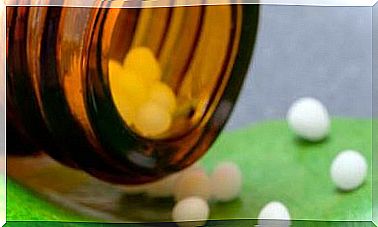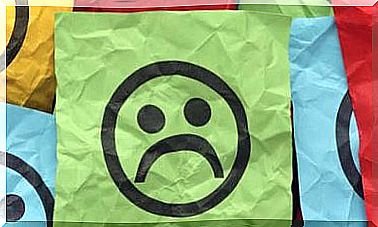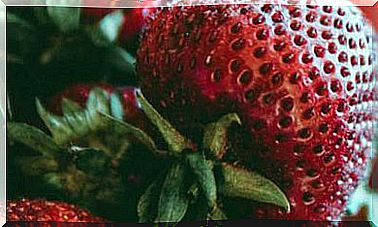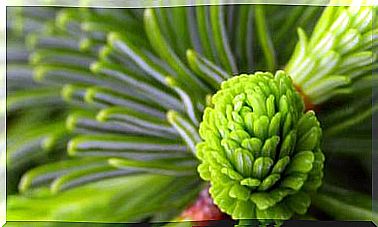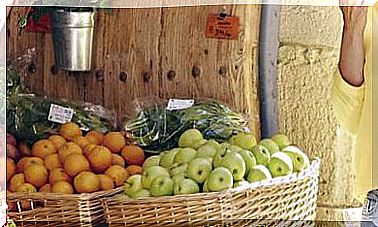The Best Diet To Take Care Of Women’s Hormonal Health
Diet is one of the most powerful tools to take care of hormonal health in all stages of a woman’s life. Discover the diet that adapts to your natural monthly cycle.

Many women live in cities where we are exposed to air pollution and electromagnetic radiation, experience stress, eat fast, lead sedentary lives, and constantly alter our circadian rhythms of sleep and wakefulness. In short, we live a reality that inevitably leads us to a worsening of hormonal health. That is why it is important that we take care of it with one of the most powerful tools we have: food.
Nutrients needed for hormonal balance
For the female hormonal cycle to be healthy, we need to give the body essential nutrients. We are going to highlight six of the most important.
- Vitamin B6. It helps the body make serotonin, the hormone of happiness and is key to reducing many of the symptoms of PMS. When we are deficient in this vitamin we can experience mood swings and irritability. It is especially important after ovulation. We find it in eggs, oats, nuts, bananas or potatoes.
- Magnesium. It is the tranquilizer of nature. As with vitamin B6, lower levels of magnesium have been found in women with PMS. Its deficiency can be the cause of menstrual migraines. Magnesium is much more effective when combined with vitamin B6. Luckily, nature knows this and we can find both nutrients in pumpkin or sunflower seeds, in oleaginous fruits such as almonds or pistachios and in spinach.
- Iron. If menstruations are very abundant and we do not eat enough foods rich in iron, we can develop anemia (which can cause fatigue, mood changes, headaches, etc.). It is an important mineral for ovulation and for maintaining a regular menstrual cycle. In the ovo-vegetarian diet, legumes, green leafy vegetables, eggs and seeds provide it.
- Omega 3. This family of fatty acids has an anti-inflammatory effect and participates in the modulation, synthesis, degradation and reuptake of neurotransmitters and hormones. They even promote the regeneration of all cells in the body, including those of the endometrium and ovules. Foods that contain them in abundance or supplements can be a relief in cases of inflammation or high sensitivity in the chest. They can also be effective for cases of anxiety, depression and headaches associated with the hormonal cycle. People who follow an omnivorous diet get them from oily fish, and vegetarians from walnuts and from flax and chia seeds or supplements made from algae.
- Vitamin A. It is essential for the formation of the corpus luteum, which modulates progesterone secretion after ovulation. In plant food, it can be found in orange-colored foods, such as pumpkin, carrot, sweet potato, etc.
- Zinc. It is an antioxidant that prevents premature cell aging and is essential for hormonal balance. It is present in eggs, mushrooms, oats, barley, sunflower and pumpkin seeds, cashews, beans or vegetables such as endive and endive.
- Vitamin D. In addition to all the nutrients already mentioned, we must not forget the importance of getting vitamin D. You can get it by exposing yourself to the sun without protection in less intense hours, and if necessary, through supplements.
Vegetarian diet is not a problem for hormonal health
Many women wonder if a vegetarian or vegan diet is healthy at all stages of a woman’s life. The answer is that it is if it is well designed. In fact, there is much research that supports its benefits: it protects against some types of cancer and reduces the risk of diabetes, cardiovascular accidents or obesity.
However, ovarian hormone concentrations may be lower at various times in the menstrual cycle in vegetarian women who follow high-fiber, low-fat diets.
Remember that olive oil and other unrefined oils, unroasted and unsalted nuts, and seeds must be part of the daily diet. Eating healthy will help the month go by with minimal or no discomfort. And if you have any symptoms, it helps you overcome them.
Habits that prevent menstrual and premenstrual pain
Pain related to menstruation, be it premenstrual or menstrual, is the most common complaint suffered by many women. The cause of mild pain, which can be accompanied by other discomforts such as fatigue, nausea or headache, is inflammation produced by prostaglandins (inflammatory hormones), which help the uterus to contract to release all menstrual matter. You can also experience severe pain, but in this case it must be ruled out that there is not a problem such as uterine fibroids, infections, polycystic ovary syndrome, endometriosis or other alterations.
Between 40 and 75% of women do not experience any discomfort. Pain that recurs every month and that can be severe, without an explanatory medical cause, may be due to underlying chronic inflammation and is associated with unhealthy habits, stress or nutritional deficiencies.
The intake of inflammatory substances should be reduced or eliminated throughout the month: tobacco, cow’s milk, alcohol, refined vegetable oils, refined sugar, wheat (in case of sensitivity, intestinal permeability or altered microbiota). It is also important to avoid sedentary lifestyle and dehydration. A nutritious diet rich in anti-inflammatory nutrients, such as omega-3s and zinc, will further reduce discomfort.
Nutrients that help in case of endometriosis
Between 5 and 20% of women who go to the hospital with pelvic pain or heavy bleeding are diagnosed with endometriosis. This problem is that the lining of the uterus invades other areas, such as the fallopian tubes, ovaries, bladder or rectum, which can cause adhesions, cysts, scars and other injuries. The causes of endometriosis are not clear. Genetic and environmental factors can mix, but some nutrients help.
- Vitamin D. Contributes to the regulation of normal cell growth and modulates inflammation. That is why it is interesting that you check through an analysis if you suffer from a deficiency and that, in any case, you make sure that you get it in sufficient dose.
- Quercetin. It is an antioxidant and anti-inflammatory compound that helps control the spread of endometriosis. It is found in onions, buckwheat, red grape, apple, and raspberry, among other fruits and vegetables.
- Indoles and lignans. Both compounds favor the elimination of estrogens. Indoles are found in cabbages (the minimum recommended intake is 100 g of broccoli twice a week) and lignans, whose main source is flax (you can take two tablespoons of seeds a day).
- Marine Omega-3. Women with higher levels of EPA acid (one of the family members) are 82% less likely to suffer from endometriosis. If you do not consume fish, it may be interesting to take an omega-3 supplement made from algae.
- Curcumin The active substance in turmeric has the potential to deactivate inflammatory chemokines and cytokines involved in endometriosis. You can add turmeric to your favorite dishes, along with black pepper, which enhances its absorption.
Diet adapted to menopause
Foods that have antioxidant and anti-inflammatory power are still suitable for the menopausal stage and, especially those that contain phytoestrogens, which relieve discomfort and hot flashes. You will find a list of these foods in this article. link is missing
Hot and spicy food, caffeine, alcohol, white sugar, high temperature, and stress do not help prevent hot flashes. Try to avoid them for a week, and have food and drinks at room temperature or cold, whole grains and relaxing infusions.
Also practice relaxation exercises, yoga or meditation. You can keep a journal where you can write down how you feel; this way you will get to know yourself better and become an expert in everything that happens to you.
In this phase, estrogen production decreases and physical changes occur. There may be an ease in gaining weight that will accumulate especially in the abdomen area. Muscle mass is also lost.
If we continue eating as usual, although it is a healthy diet, we must increase physical activity to avoid gaining weight. Lack of sleep at this stage also contributes to weight gain, so make sure you get enough sleep. It has been proven that when you don’t get enough sleep you tend to eat more and consume more calories.
Take care of emotions
The drop in hormones also affects emotional health. If you feel irritable or want to cry, find a moment for yourself. The hormonal changes of this stage invite us to be alone, connected with ourselves, to breathe deeply.
If you like to write, this is an ideal time to reflect through writing. Also to unleash creativity, with drawing, for example. You see, just as important as diet is our habits, which meticulously sculpt our hormonal life.
- Marta León is the author of the book Feeding and Feminine Health.
